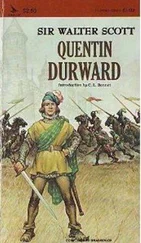Walter Scott - Letters on Demonology and Witchcraft
Здесь есть возможность читать онлайн «Walter Scott - Letters on Demonology and Witchcraft» весь текст электронной книги совершенно бесплатно (целиком полную версию без сокращений). В некоторых случаях можно слушать аудио, скачать через торрент в формате fb2 и присутствует краткое содержание. Жанр: История, на английском языке. Описание произведения, (предисловие) а так же отзывы посетителей доступны на портале библиотеки ЛибКат.
- Название:Letters on Demonology and Witchcraft
- Автор:
- Жанр:
- Год:неизвестен
- ISBN:нет данных
- Рейтинг книги:4 / 5. Голосов: 1
-
Избранное:Добавить в избранное
- Отзывы:
-
Ваша оценка:
- 80
- 1
- 2
- 3
- 4
- 5
Letters on Demonology and Witchcraft: краткое содержание, описание и аннотация
Предлагаем к чтению аннотацию, описание, краткое содержание или предисловие (зависит от того, что написал сам автор книги «Letters on Demonology and Witchcraft»). Если вы не нашли необходимую информацию о книге — напишите в комментариях, мы постараемся отыскать её.
Letters on Demonology and Witchcraft — читать онлайн бесплатно полную книгу (весь текст) целиком
Ниже представлен текст книги, разбитый по страницам. Система сохранения места последней прочитанной страницы, позволяет с удобством читать онлайн бесплатно книгу «Letters on Demonology and Witchcraft», без необходимости каждый раз заново искать на чём Вы остановились. Поставьте закладку, и сможете в любой момент перейти на страницу, на которой закончили чтение.
Интервал:
Закладка:
He thus expostulates with some of the better class who were eager for the prosecution:—"(1) What single fact of sorcery did this Jane Wenham do? What charm did she use, or what act of witchcraft could you prove upon her? Laws are against evil actions that can be proved to be of the person's doing. What single fact that was against the statute could you fix upon her? I ask (2) Did she so much as speak an imprudent word, or do an immoral action, that you could put into the narrative of her case? When she was denied a few turnips, she laid them down very submissively; when she was called witch and bitch, she only took the proper means for the vindication of her good name; when she saw this storm coming upon her she locked herself in her own house and tried to keep herself out of your cruel hands; when her door was broken open, and you gave way to that barbarous usage that she met with, she protested her innocence, fell upon her knees, and begged she might not go to gaol, and, in her innocent simplicity, would have let you swim her; and at her trial she declared herself a clear woman. This was her behaviour. And what could any of us have done better, excepting in that case where she complied with you too much, and offered to let you swim her?
"(3) When you used the meanest of paganish and popish superstitions—when you scratched and mangled and ran pins into her flesh, and used that ridiculous trial of the bottle, &c.—whom did you consult, and from whom did you expect your answers? Who was your father? and into whose hands did you put yourselves? and (if the true sense of the statute had been turned upon you) which way would you have defended yourselves? (4) Durst you have used her in this manner if she had been rich? and doth not her poverty increase rather than lessen your guilt in what you did?
"And therefore, instead of closing your book with a liberavimus animas nostras , and reflecting upon the court, I ask you (5) Whether you have not more reason to give God thanks that you met with a wise judge, and a sensible gentleman, who kept you from shedding innocent blood, and reviving the meanest and cruelest of all superstitions amongst us?" [55] [55] Hutchison's "Essay on Witchcraft," p. 166.
But although individuals of the English Church might on some occasions be justly accused of falling into lamentable errors on a subject where error was so general, it was not an usual point of their professional character; and it must be admitted that the most severe of the laws against witchcraft originated with a Scottish King of England, and that the only extensive persecution following that statute occurred during the time of the Civil Wars, when the Calvinists obtained for a short period a predominating influence in the councils of Parliament.
James succeeded to Elizabeth amidst the highest expectations on the part of his new people, who, besides their general satisfaction at coming once more under the rule of a king, were also proud of his supposed abilities and real knowledge of books and languages, and were naturally, though imprudently, disposed to gratify him by deferring to his judgment in matters wherein his studies were supposed to have rendered him a special proficient. Unfortunately, besides the more harmless freak of becoming a prentice in the art of poetry, by which words and numbers were the only sufferers, the monarch had composed a deep work upon Demonology, embracing in their fullest extent the most absurd and gross of the popular errors on this subject. He considered his crown and life as habitually aimed at by the sworn slaves of Satan. Several had been executed for an attempt to poison him by magical arts; and the turbulent Francis Stewart, Earl of Bothwell, whose repeated attempts on his person had long been James's terror, had begun his course of rebellion by a consultation with the weird sisters and soothsayers. Thus the king, who had proved with his pen the supposed sorcerers to be the direct enemies of the Deity, and who conceived he knew them from experience to be his own—who, moreover, had upon much lighter occasions (as in the case of Vorstius) showed no hesitation at throwing his royal authority into the scale to aid his arguments—very naturally used his influence, when it was at the highest, to extend and enforce the laws against a crime which he both hated and feared.
The English statute against witchcraft, passed in the very first year of that reign, is therefore of a most special nature, describing witchcraft by all the various modes and ceremonies in which, according to King James's fancy, that crime could be perpetrated; each of which was declared felony, without benefit of clergy.
This gave much wider scope to prosecution on the statute than had existed under the milder acts of Elizabeth. Men might now be punished for the practice of witchcraft, as itself a crime, without necessary reference to the ulterior objects of the perpetrator. It is remarkable that in the same year, when the legislature rather adopted the passions and fears of the king than expressed their own by this fatal enactment, the Convocation of the Church evinced a very different spirit; for, seeing the ridicule brought on their sacred profession by forward and presumptuous men, in the attempt to relieve demoniacs from a disease which was commonly occasioned by natural causes, if not the mere creature of imposture, they passed a canon, establishing that no minister or ministers should in future attempt to expel any devil or devils, without the license of his bishop; thereby virtually putting a stop to a fertile source of knavery among the people, and disgraceful folly among the inferior churchmen.
The new statute of James does not, however, appear to have led at first to many prosecutions. One of the most remarkable was ( proh pudor! ) instigated by a gentleman, a scholar of classical taste, and a beautiful poet, being no other than Edward Fairfax of Fayston, in Knaresborough Forest, the translator of Tasso's "Jerusalem Delivered." In allusion to his credulity on such subjects, Collins has introduced the following elegant lines:—
"How have I sate while piped the pensive wind,
To hear thy harp, by British Fairfax strung;
Prevailing poet, whose undoubting mind
Believed the magic wonders which he sung!"
Like Mr. Throgmorton in the Warbois case, Mr. Fairfax accused six of his neighbours of tormenting his children by fits of an extraordinary kind, by imps, and by appearing before the afflicted in their own shape during the crisis of these operations. The admitting this last circumstance to be a legitimate mode of proof, gave a most cruel advantage against the accused, for it could not, according to the ideas of the demonologists, be confuted even by the most distinct alibi . To a defence of that sort it was replied that the afflicted person did not see the actual witch, whose corporeal presence must indeed have been obvious to every one in the room as well as to the afflicted, but that the evidence of the sufferers related to the appearance of their spectre , or apparition; and this was accounted a sure sign of guilt in those whose forms were so manifested during the fits of the afflicted, and who were complained of and cried out upon by the victim. The obvious tendency of this doctrine, as to visionary or spectral evidence, as it was called, was to place the life and fame of the accused in the power of any hypochondriac patient or malignant impostor, who might either seem to see, or aver she saw, the spectrum of the accused old man or old woman, as if enjoying and urging on the afflictions which she complained of; and, strange to tell, the fatal sentence was to rest, not upon the truth of the witnesses' eyes, but that of their imagination. It happened fortunately for Fairfax's memory, that the objects of his prosecution were persons of good character, and that the judge was a man of sense, and made so wise and skilful a charge to the jury, that they brought in a verdict of not guilty.
Читать дальшеИнтервал:
Закладка:
Похожие книги на «Letters on Demonology and Witchcraft»
Представляем Вашему вниманию похожие книги на «Letters on Demonology and Witchcraft» списком для выбора. Мы отобрали схожую по названию и смыслу литературу в надежде предоставить читателям больше вариантов отыскать новые, интересные, ещё непрочитанные произведения.
Обсуждение, отзывы о книге «Letters on Demonology and Witchcraft» и просто собственные мнения читателей. Оставьте ваши комментарии, напишите, что Вы думаете о произведении, его смысле или главных героях. Укажите что конкретно понравилось, а что нет, и почему Вы так считаете.









